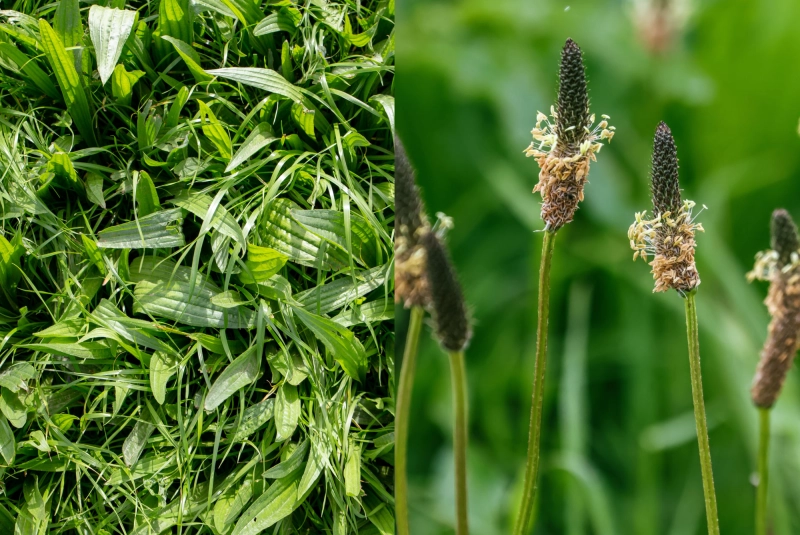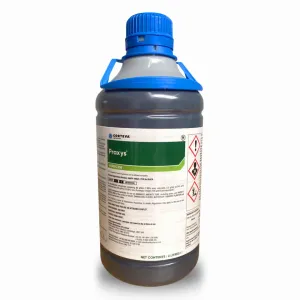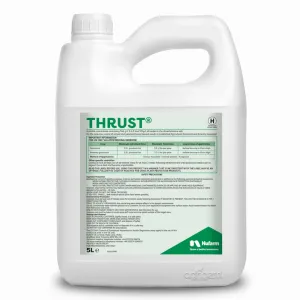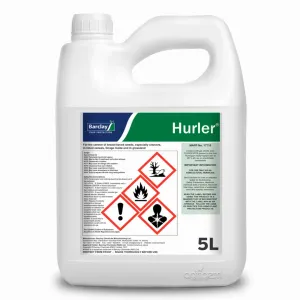Plantain is a persistent intrusive plant that thrives right across the UK in a variety of conditions, meaning it establishes with ease.
There are a few different varieties of plantain, the most common two being broadleaf plantain (or greater plantain) and ribwort plantain. Both are prolific seeders, with flower stalks producing thousands of tiny seeds, easily dispersed by wind, water, shoe soles, and hooves.
Ribwort plantain

The flowers of ribwort plantain grow on thin wiry stems which sprout from a rosette of dark green spear-shaped leaves. The flowers have protruding white stamens which gradually turn brown.
Broadleaf plantain

Broadleaf plantain (or greater plantain) has broader oval leaves which form a rosette close to the ground. It produces yellow green flower spikes up to 15cm long with small flowers densely packed together which go on to form green seeds.
The problem with plantain
Plantain is highly competitive and will compete with grass for nutrients and water. Over time, this can weaken grass making it more susceptible to problems like disease and moss.
It is a very hardy plant and tolerates compacted soil very well. Areas with heavy foot or hoof traffic can stress beneficial grasses, but plantain can thrive in these spots – even where drainage is poor. For this reason, if you do see a lot of plantain in your lawn or paddock, it can be an indicator of soil compaction meaning that grass may benefit from aeration once the plantain has been removed.
Plantain is not toxic to animals, but it is considered less palatable or nutritious compared with desirable forage grasses and legumes. Therefore, a paddock that has a large proportion of plantain will offer a much lower quality diet for grazing animals and is best removed.
Control in lawns
Where plantains cannot be removed manually, use a targeted and selective herbicide like Praxys.
Praxys provides effective control of plantains when used in accordance with instructions during the growing season. It will also control other broad-leafed weeds such as clover, daisy and thistle.
Control in paddocks
To remove plantains from paddock pasture, use Thrust. This selective herbicide will tackle plantains without harming the surrounding grassland.
Thrust will also tackle the problematic weed ragwort, as well as other common paddock weeds like thistle, dock, soft rush and buttercups. To increase the spectrum of controllable weeds we would recommend using Thrust at 3L/ha mixed with 2L/ha of Hurler.
Always read the product label and instructions carefully before using selective herbicides. Contact our specialist technical team if you have any questions.






